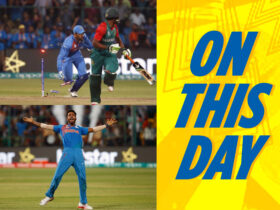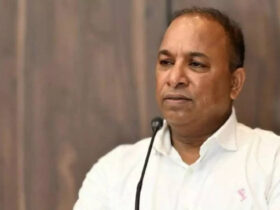Mohammad Amir Slams PCB, Reveals True Reasons Behind Second Retirement from Pakistan Cricket
In a stunning revelation that has sent shockwaves through the cricketing world, former Pakistan pace spearhead Mohammad Amir has exposed his deep frustrations with the Pakistan Cricket Board (PCB), citing a complete lack of communication and respect as the core reasons for his second retirement from international cricket. This bombshell comes after Amir, alongside spin all-rounder Imad Wasim, announced their retirements on consecutive days in December 2024, following a disappointing T20 World Cup 2024 campaign in the Americas, where Pakistan failed to advance past the group stage.
Appearing on a local TV channel, the 33-year-old left-arm pacer did not hold back, expressing how he felt ignored and sidelined by the PCB post-tournament. ‘After the T20 World Cup ended, no one even talked to me. There was no discussion about whether I was part of their future plans or not,’ Amir stated with palpable frustration. He added, ‘A wise person understands the signs. If you’re not in the plans, you have to think about yourself. I’ve made up my mind now—thank you very much, international cricket.’ His words paint a picture of a player pushed to the edge by a system that failed to value his contributions.
This is not the first time Amir has walked away from Pakistan cricket. His initial retirement in December 2020 was marred by disputes with then-coaches Misbah-ul-Haq and Waqar Younis, citing mental strain and a toxic environment. However, lured by the prospect of representing Pakistan at the 2024 T20 World Cup, Amir reversed his decision, only to face what he describes as a repeat of the same neglect. Intriguingly, he also revealed turning down a lucrative County Cricket contract at the PCB’s behest to prioritize national duty, a decision that cost him financially. ‘Honestly speaking, I spent more money than I earned. I traveled with my trainer, and all those expenses came from my pocket. But that’s a separate matter,’ he remarked.
Beyond his personal grievances, Amir shared his philosophy on the game, advocating for a return to cricket’s fierce competitive spirit. ‘Cricket used to be fierce. Being mentally aggressive is part of the game’s beauty. It’s not disrespect—it’s about shifting the batter’s focus. Off the field, we all hang out and joke around,’ he explained, highlighting the balance between on-field intensity and off-field camaraderie. His comments reflect a longing for the raw passion that once defined international cricket.
In a show of solidarity, Amir also backed embattled Pakistan captain Babar Azam, who faced heavy criticism after the team’s World Cup debacle. While expressing confidence in Babar’s ability to bounce back, Amir didn’t shy away from pointing out technical flaws in his batting. ‘Babar is a world-class player, and I believe in him. But there are areas in his technique that need work, and I hope he addresses them,’ he noted. With Babar’s form under scrutiny—scoring only 122 runs in 4 matches at an average of 40.66 during the tournament—Amir’s words carry weight as both encouragement and constructive critique.
As Mohammad Amir closes this chapter of his illustrious career, which saw him scalp 119 Test wickets, 81 ODI wickets, and 59 T20I wickets since his debut in 2009, the cricket fraternity is left pondering the systemic issues within the PCB. His revelations raise critical questions about player management and communication, especially for a bowler who was once hailed as one of the finest talents in world cricket, famously starring in Pakistan’s 2009 T20 World Cup triumph and the iconic 2017 Champions Trophy victory.
What lies ahead for Amir remains uncertain, but his candidness has already sparked debates about the future of Pakistan cricket. Will the PCB address these concerns, or will more talents walk away disillusioned? For now, Mohammad Amir’s exit serves as a stark reminder of the delicate balance between talent, opportunity, and organizational support in the high-stakes world of international cricket.





















